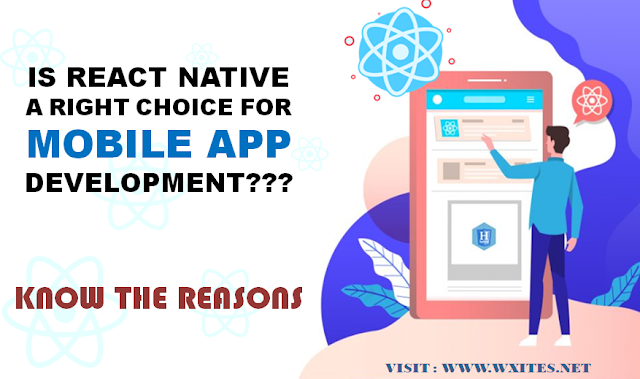React Native is FB’s follow-up to their exceptionally effective React framework for UIs in web app development. React's prominence with web developers and designers was predicated on its effortlessness and utilization of JavaScript; embodied by the possibility that "User Interface is a function of information – if the data changes, the user interface should change."
React Native basically applies similar standards to UI in Mobile Application Development.
SOLID REASONS LISTED FOR USING REACT NATIVE FOR MOBILE DEVELOPMENT
React Native enables developers to keep in touch with one set of code (Javascript) and enjoy execution of a Native application. React Native is better than creating Hybrid or Native applications for 5 major reasons:
1) Cross-platform
React Native was only created for iOS platform support, however because of its prosperity and fame, Facebook chose to develop support for Android also. This means that development for the two iOS and Android should both be possible through React Native all the while through one codebase, which means lower development costs.
2) Work on UI
Along these lines one can make UI look precisely like a JavaScript and to a lesser extent a framework itself. It's an example used to improve the procedure and make User-Interface work in a smooth way to give very good quality speedy responsive results. Create a mobile application for your business with no unpredictability.
3) Reusability; the Main Key
This means the building blocks are treated as native elements that can be compiled legitimately into the native languages of Objective-C for iOS & Java for Android.
Ordinarily, web app development utilizes an increasingly agile and quick approach and React Native takes into consideration a similar speed in approaching mobile app development without sacrificing quality and ease of use.
4) Performance and Execution
Generally, Hybrid or Mobile Web applications that work on iOS and Android have gotten flack for basically being lesser applications. Be that as it may, while performance utilizing hybrid does tends to go down for complicated applications, there are numerous upsides to creating through React Native. For one thing, applications worked through React Native are accumulated into natively composed code. This means they only work on iOS and Android operating systems, yet additionally work the same as a natively written application.
5) Practicality
React Native uses JavaScript, this, combined with the intuitive design of the framework itself, permits developers to jump to and from one another's projects without breaking a sweat.
Portions of a particular application written in React Native will experience no difficulty consolidating with parts written in the local languages for iOS or Android.
The typical work process would consist of composing the vast majority of the code on React Native and afterward utilizing the local languages to upgrade certain elements of the application.
However, it is totally up to the developer and engineer with respect to how he needs to create the application. Not exclusively can the native languages of an OS be utilized to optimize an app, they can likewise be used to compose parts of the application. React Native will experience no difficulty joining these native elements with those written in React Native framework.
Looking to create a mobile application in React Native? Don't hesitate to reach the Top Mobile App Development Company team. We look forward to getting a query from you!




0 comments:
Post a Comment